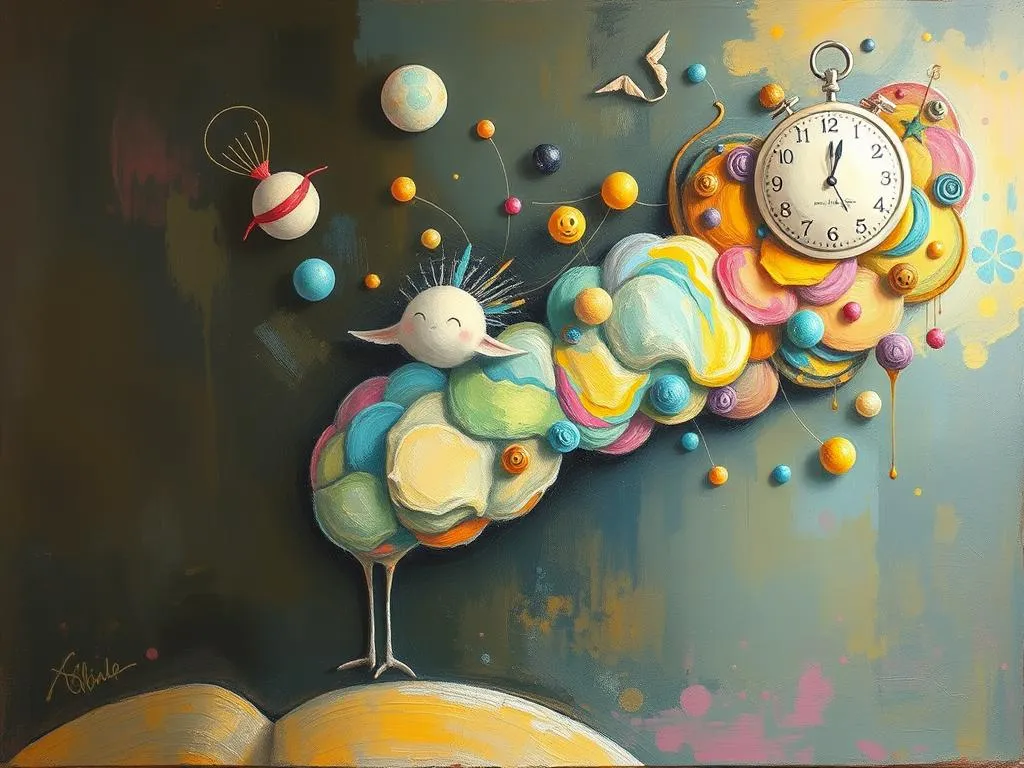
Dreams have long fascinated humanity, acting as a window into our subconscious minds. Among the myriad of themes and symbols that can emerge during sleep, the concept of spending time stands out as particularly compelling. This notion resonates deeply with individuals, encapsulating feelings of value, connection, and even existential reflection. Understanding the significance of this dream symbol can provide valuable insights into our lives, relationships, and personal growth.
Symbolism and Meaning
When we dream about spending time, it often reflects our desires, priorities, and the emotional landscape we navigate in our waking lives. Time, as a concept, is multifaceted in dreams. It can symbolize our past, present, and future, serving as a reminder of how we allocate our most precious resource.
In the realm of dreams, time may take on various forms. For instance, if you find yourself spending time in a dream with loved ones, it may indicate a longing for connection or a desire to nurture relationships that may be neglected in your daily life. Conversely, spending time alone in a dream can signify a need for introspection or personal space, highlighting feelings of solitude or a quest for self-discovery.
Additionally, the quality of the time spent in the dream can alter its meaning. Enjoying carefree moments might suggest feelings of happiness and fulfillment, whereas experiencing a sense of urgency or pressure could reflect stress or anxiety about how you spend your waking hours. Such dreams prompt us to question whether we are truly making the most of our time and relationships.
From a psychological perspective, spending time in dreams can also symbolize our relationship with time management and productivity. If you dream about being late or missing out on an important event, it might reveal underlying fears about falling behind or not achieving your goals. This interpretation encourages self-reflection on how you perceive time in your life and whether it aligns with your aspirations.
Furthermore, the cultural context in which we live influences how we interpret the concept of time. For instance, in cultures that prioritize collectivism, dreaming of spending time with others might underscore the importance of community and social bonds. In contrast, in more individualistic societies, such dreams may highlight personal achievement and self-fulfillment.
Key Scenarios and Variations
The interpretation of dreams involving spending time can vary significantly based on the specific scenarios presented. Consider the following common variations:
-
Spending Time with Friends or Family: If you dream of enjoying quality time with friends or family, it may signify a need for connection or support in your waking life. This scenario often underscores the importance of nurturing relationships, reflecting a desire to strengthen bonds that may have weakened over time.
-
Spending Time in Nature: Dreaming of spending time in natural settings can evoke feelings of peace and tranquility. This variation often symbolizes a longing for freedom, a desire to reconnect with one’s self, or an urge to escape the stressors of daily life. It invites you to consider how often you take time to appreciate the world around you and recharge your spirit.
-
Rushed or Chaotic Time: If your dream features a sense of urgency, such as being late for an event or racing against the clock, it may indicate feelings of stress or pressure in your waking life. This scenario calls attention to how you manage your time and could prompt reflection on whether you are prioritizing what truly matters.
-
Wasted Time: Dreams that depict a sense of wasted time or missed opportunities can evoke feelings of regret or anxiety about unfulfilled potential. This scenario may push you to evaluate your goals and assess whether you are actively pursuing your passions or merely drifting through life.
-
Time Travel: Experiencing dreams that involve traveling back or forward in time introduces a fascinating layer of complexity. Such dreams often reflect a desire to revisit past experiences or explore future possibilities. They can encourage you to confront unresolved issues or envision the life you aspire to lead.
Each of these scenarios offers unique insights into your emotional state and priorities, enabling you to engage in deeper self-reflection. The context of the dream plays a crucial role in shaping its meaning, so consider how the various elements resonate with your waking life.
Real-Life Connections and Takeaways
The dreams we have about spending time can serve as powerful tools for self-reflection and personal growth. By analyzing these dreams, we can gain insights into our priorities, relationships, and overall well-being.
To connect your dreams to your waking life, begin by reflecting on your current emotional state. Are there relationships that require more attention? Are you spending enough time on activities that bring you joy and fulfillment? Taking inventory of your time management can lead to significant changes in your daily routine.
Consider keeping a dream journal to document your dreams related to spending time. Write down the details, emotions, and symbols that stood out to you. Over time, patterns may emerge, revealing underlying themes in your life. This practice not only helps you remember your dreams but also encourages you to explore their meanings more deeply.
Engaging in mindfulness practices can also help you become more aware of how you spend your time. By being present in the moment, you can cultivate a greater appreciation for the time you have and the relationships you cherish. Mindfulness can foster a sense of balance, enabling you to prioritize what truly matters.
Moreover, take time to evaluate your life goals and aspirations. Are you dedicating enough time to pursue your passions? If you find that your dreams indicate a sense of wasted time or missed opportunities, consider taking actionable steps to realign your time with your values. Setting aside dedicated time for self-care, creativity, or personal development can invigorate your daily routine.
Lastly, don’t shy away from exploring the emotional undercurrents of your dreams. If a dream evokes feelings of anxiety or regret, take time to process those emotions. Engaging in conversations with trusted friends or a therapist can provide clarity and support as you navigate your feelings.
In conclusion, dreams involving spending time are rich with meaning and significance. They offer a unique lens through which to examine our lives, relationships, and priorities. By reflecting on these dreams and connecting them to our waking experiences, we can foster personal growth and deepen our understanding of ourselves. The next time you find yourself dreaming about time, take a moment to unravel its meaning—it could lead to profound insights that resonate in your everyday life.







